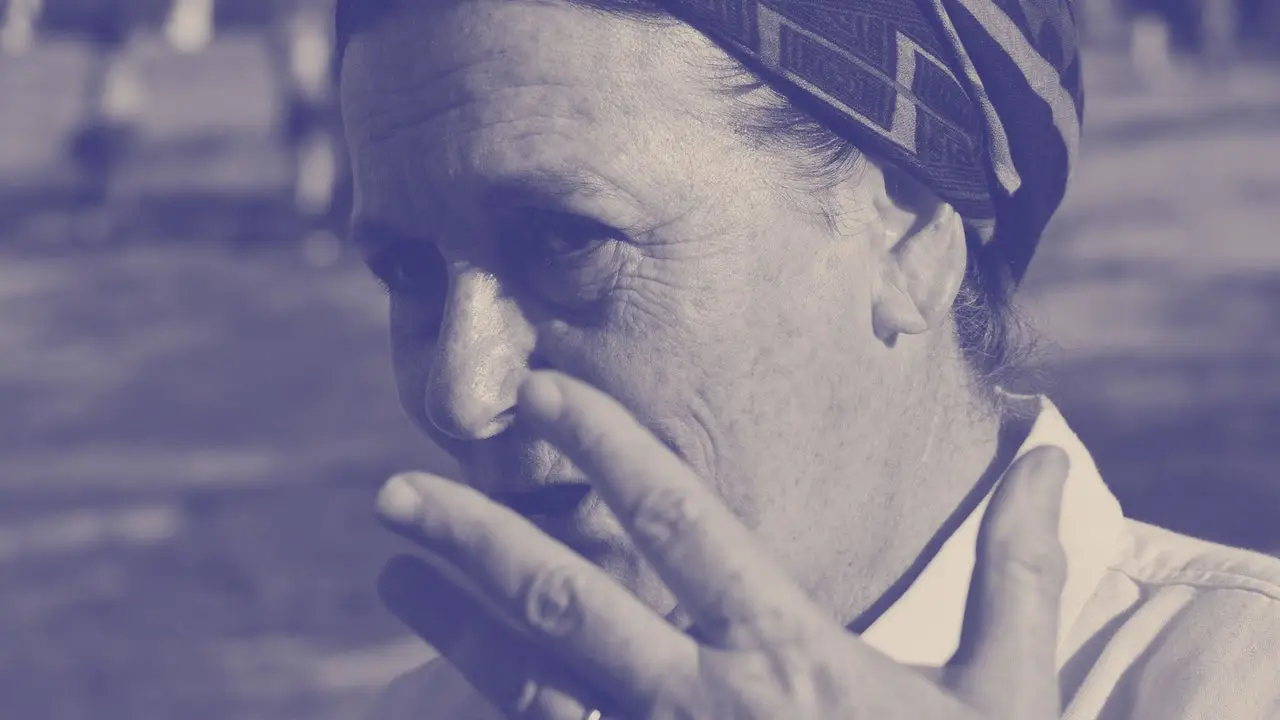emizeko [they/them]
- 213 Posts
- 6.96K Comments

 36·2 months ago
36·2 months agoI thought it was cylindrical?

 16·2 months ago
16·2 months agoI have to eat food, I don’t have to vote

 13·2 months ago
13·2 months agoif your ballot is trash then throwing it away makes a lot of sense
if their tech is that good they’ve already won so just relax by chucking a big cloud

 54·2 months ago
54·2 months agoyou don’t have to vote and you don’t have to vote for a major party. it’s not a magic ritual. unless you live in a swing state the only effect it will have is a stain on your conscience for the rest of your life for having affirmatively said “yeah genocide is okay I guess”
These are the days of subscription campaigns. The editors and administrators of bourgeois newspapers tidy up their display windows, paint some varnish on their shop signs and appeal for the attention of the passer-by (that is, the readers) to their wares. Their wares are newspapers of four or six pages that go out every day or evening in order to inject in the mind of the reader ways of feeling and judging the facts of current politics appropriate for the producers and sellers of the press.
We would like to discuss, with the workers especially, the importance and seriousness of this apparently innocent act, which consists in choosing the newspaper you subscribe to. It is a choice full of snares and dangers which must be made consciously, applying criteria and after mature reflection.
Above all, the worker must resolutely reject any solidarity with a bourgeois newspaper. And he must always, always, always remember that the bourgeois newspaper (whatever its hue) is an instrument of struggle motivated by ideas and interests that are contrary to his. Everything that is published is influenced by one idea: that of serving the dominant class, and which is ineluctably translated into a fact: that of combating the laboring class. And in fact, from the first to the last line the bourgeois newspaper smells of and reveals this preoccupation.
But the beautiful – that is the ugly – thing is this: that instead of asking for money from the bourgeois class to support it in its pitiless work in its favor, the bourgeois newspapers manage to be paid by…the same laboring classes that they always combat. And the laboring class pays; punctually, generously.
Hundreds of thousands of workers regularly and daily give their pennies to the bourgeois newspapers, thus assisting in creating their power. Why? If you were to ask this of the first worker you were to see on the tram or the street with a bourgeois paper spread before him you would hear: “Because I need to hear about what happening.” And it would never enter his head that the news and the ingredients with which it is cooked are exposed with an art that guides his ideas and influences his spirit in a given direction. And yet he knows that this newspaper is opportunist, and that one is for the rich, that the third, the fourth, the fifth is tied to political groups with interests diametrically opposed to his.
And so every day this same worker is able to personally see that the bourgeois newspapers tell even the simplest of facts in a way that favors the bourgeois class and damns the working class and its politics. Has a strike broken out? The workers are always wrong as far as the bourgeois newspapers are concerned. Is there a demonstration? The demonstrators are always wrong, solely because they are workers they are always hotheads, rioters, hoodlums. The government passes a law? It’s always good, useful and just, even if it’s…not. And if there’s an electoral, political or administrative struggle? The best programs and candidates are always those of the bourgeois parties.
And we’re aren’t even talking about all the facts that the bourgeois newspapers either keep quiet about, or travesty, or falsify in order to mislead, delude or maintain in ignorance the laboring public. Despite this, the culpable acquiescence of the worker to the bourgeois newspapers is limitless. We have to react against this and recall the worker to the correct evaluation of reality. We have to say and repeat that the pennies tossed there distractedly into the hands of the newsboy are projectiles granted to a bourgeois newspaper, which will hurl it, at the opportune moment, against the working masses.
If the workers were to be persuaded of this most elementary of truths they would learn to boycott the bourgeois press with the same unity and discipline that the bourgeoisie boycott the newspapers of the workers, that is, the Socialist press. Don’t give financial assistance to the bourgeois press, which is your adversary. This is what should be our battle cry in this moment that is characterized by the subscription campaigns of all the bourgeois newspapers. Boycott them, boycott them, boycott them!
from Newspapers and the Workers by Antonio Gramsci (1916)
You can look at any existing socialist country— if you don’t want to call them socialist, call them whatever you want. Post capitalist— whatever, I don’t care. Call them camels or window shades, it doesn’t matter as long as we know the countries we’re talking about. If you look at any one of those countries, you can evaluate them in several ways. One is comparing them to what they had before, and that to me is what’s very compelling. That’s what so compelling about Cuba, for instance. When I was in Cuba I was up in the Escambia, which is like the Appalachia of Cuba, very rugged mountains with people who were poor, or they were. And I said to this campesino, I said, “Do you like Fidel?” and he said “Si si, with all my soul.” I remember this gesture, with all our souls. I said “Why?” and he pointed to this clinic right up on the hill which we had visited. He said, “Look at that.” He said “Before the revolution, we never saw a doctor. If someone was seriously ill, it would take twenty people to carry that person, it’d go day and night. It would take two days to get to the hospital. First because it was far away and second because you couldn’t go straight, you couldn’t cross the latifundia lands, the boss would kill you. So, you had to go like this, and often when we got to the hospital, the person might be dead by the time we got there. Now we have this clinic up here with a full-time doctor. And today in Cuba when you become a doctor you got to spend two years out in the country, that’s your dedication to the people. And a dentist that comes one day a week. And for serious things, we’re not more than 20 minutes away from a larger hospital. That’s in the Escambia. So that’s freedom. We’re freer today, we have more life.” And I talked to a guy in Havana who says to me “All I used to see here in Havana, you call this drab and dull, we see it as a cleaner city. It’s true, the paint is peeling off the walls, but you don’t see kids begging in the streets anymore and you don’t see prostitutes.” Prostitution used to be one of the biggest industries. And today this man is going to night school. He said “I could read! I can read, do you know what it means to be able to read? Do you know what it means to be able not to read?” I remember when I gave my book to my father. I dedicated a book of mine to him, “Power and the Powerless” to my father, I said “To my father with my love,” I gave him a copy of the book, he opened it up and looked at it. He had only gone to the seventh grade, he was the son of an immigrant, a working-class Italian. He opens the book and he starts looking through it, and he gets misty-eyed, very misty-eyed. And I thought it was because he was so touched that his son had dedicated a book to him. That wasn’t the reason. He looks up to me and he says ‘I can’t read this, kid” I said “That’s okay dad, neither can the students, don’t worry about that. I mean I wrote it for you, it’s your book and you don’t have to read it. It’s a very complicated book, an academic book. He says, “I can’t read this book.” And the defeat. The defeat that man felt. That’s what illiteracy is about, that’s what the joy of literacy programs is. That’s why you have people in Nicaragua walking proud now for the first time. They were treated like animals before, they weren’t allowed to read, they weren’t taught to read. So, you compare a country from what it came from, with all it’s imperfections. And those who demand instant perfection the day after the revolution, they go up and say “Are there civil liberties for the fascists? Are they gonna be allowed their newspapers and their radio programs, are they gonna be able to keep all their farms? The passion that some of our liberals feel, the day after the revolution, the passion and concern they feel for the fascists, the civil rights and civil liberties of those fascists who are dumping and destroying and murdering people before. Now the revolution has gotta be perfect, it’s gotta be flawless. Well that isn’t my criteria, my criteria is what happens to those people who couldn’t read? What happens to those babies that couldn’t eat, that died of hunger? And that’s why I support revolution. The revolution that feeds the children gets my support. Not blindly, not unqualified. And the Reaganite government that tries to stop that kind of process, that tries to keep those people in poverty and illiteracy and hunger, that gets my undiluted animosity and opposition.
—Michael Parenti
Why should they ask me to put on a uniform and go ten thousand miles from home and drop bombs and bullets on brown people in Vietnam while so-called Negro people in Louisville are treated like dogs and denied simple human rights?
No, I am not going ten thousand miles from home to help murder and burn another poor nation simply to continue the domination of white slave masters of the darker people the world over. This is the day when such evils must come to an end. I have been warned that to take such a stand would put my prestige in jeopardy and could cause me to lose millions of dollars which should accrue to me as the champion.
But I have said it once and I will say it again. The real enemy of my people is right here. I will not disgrace my religion, my people or myself by becoming a tool to enslave those who are fighting for their own justice, freedom and equality…
If I thought the war was going to bring freedom and equality to 22 million of my people they wouldn’t have to draft me, I’d join tomorrow. But I either have to obey the laws of the land or the laws of Allah. I have nothing to lose by standing up for my beliefs. So I’ll go to jail. We’ve been in jail for four hundred years.
—Muhammad Ali
It was formerly the “accepted” idea that the world has been divided from time immemorial into inferior and superior races, into blacks and whites, of whom the former are unfit for civilization and are doomed to be objects of exploitation, while the latter are the only bearers of civilization, whose mission it is to exploit the former.
That legend must now be regarded as shattered and discarded. One of the most important results of the October Revolution is that it dealt that legend a mortal blow, by demonstrating in practice that the liberated non-European peoples, drawn into the channel of Soviet development, are not one whit less capable of promoting a really progressive culture and a really progressive civilization than are the European peoples.
It was formerly the “accepted” idea that the only method of liberating the oppressed peoples is the method of bourgeois nationalism, the method of nations drawing apart from one another, the method of disuniting nations, the method of intensifying national enmity among the labouring masses of the various nations.
That legend must now be regarded as refuted. One of the most important results of the October Revolution is that it dealt that legend a mortal blow, by demonstrating in practice the possibility and expediency of the proletarian, internationalist method of liberating the oppressed peoples, as the only correct method; by demonstrating in practice the possibility and expediency of a fraternal union of the workers and peasants of the most diverse nations based on the principles of voluntariness and internationalism. The existence of the Union of Soviet Socialist Republics, which is the prototype of the future integration of the working people of all countries into a single world economic system, cannot but serve as direct proof of this.
The era of tranquil exploitation and oppression of the colonies and dependent countries has passed away.
The era of liberating revolutions in the colonies and dependent countries, the era of the awakening of the proletariat in those countries, the era of its hegemony in the revolution, has begun.
—Stalin, The International Character Of the October Revolution, 1927
Once there were brook trout in the streams in the mountains. You could see them standing in the amber current where the white edges of their fins wimpled softly in the flow. They smelled of moss in your hand. Polished and muscular and torsional. On their backs were vermiculate patterns that were maps of the world in its becoming. Maps and mazes. Of a thing which could not be put back. Not be made right again. In the deep glens where they lived all things were older than man and they hummed of mystery.
The subject takes pride in not having any relationship with the entire historic concrete movement of the working class socialist and liberation revolutions. They take pride in not having any theoretical or political connection to the revolutions in China, Russia, Korea, Vietnam, Algeria, Mozambique and Angola. They are, instead, proud of the supposed purity that their theory is not contaminated by the hardship of exercising power, by the contradictions of historical processes. Being pure is what provokes this narcissistic orgasm. This purity is what makes them feel superior.
from Western Marxism, the Fetish for Defeat, and Christian Culture by Jones Manoel
Two economists are walking in the park. The first economist sees a pile of dog shit and says to the other, “I’ll pay you $50 to eat that dog shit.” So he does and gets paid $50. Later on, the second economist sees a pile of dog shit and says to the first, “I’ll pay you $50 to eat that pile of dog shit.” So he does and gets paid $50.
The first economist says, “I can’t help but feel we just ate dog shit for nothing.” “Nonsense,” says the second economist, “We just contributed $100 to the economy.”
The fed: god inflation is so bad ugh we need to reduce the amount of money in circulation
The banks: 👉👈🥺 I need $300 billion and sloppy toppy literally right now
The fed: omg yes right away wow queen ur basis points are so huge
-
Adolf Heusinger, chief of the Operationsabteilung (third-in-command of the Wehrmacht) from 1940-1944 and Hitler’s acting Chief of Staff 1944, Chairman of the NATO Military Committee 1961-1964
-
Hans Speidel, chief of staff to Erwin Rommel, Supreme Commander of NATO’s ground forces in Central Europe 1957-1963
-
Johannes Steinhoff, Luftwaffe fighter pilot during WWII and recipient of the Knights Cross of the Iron Cross (the Nazi military’s highest award), Chairman of the NATO Military Committee 1971–1974
-
Johann von Kielmansegg, General Staff officer to the High Command of the Wehrmacht 1942-1944, NATO Commander in Chief of Allied Forces Central Europe 1967-1968
-
Ernst Ferber, Major in the Wehrmacht and group leader of the organizational department of the Supreme Command of the Army (Wehrmacht) 1943-1945 and recipient of the Iron Cross 1st Class, NATO Commander in Chief of Allied Forces Central Europe 1973-1975
-
Karl Schnell, battery chief in the Western campaign in 1940/later First General Staff Officer of the LXXVI Panzer Corps in 1944 and recipient of the Iron Cross 2nd Class, NATO Commander in Chief of Allied Forces Central Europe 1975-1977
-
Franz Joseph Schulze, Lieutenant in the reserve and Chief of the 3rd Battery of the Flak Storm Regiment 241 and recipient of the Knight’s Cross of the Iron Cross in 1944, NATO Commander in Chief of Allied Forces Central Europe 1977-1979
-
Ferdinand von Senger und Etterlin, Lieutenant of 24th Panzer Division in the German 6th Army, participant in the Battle of Stalingrad, adjutant to Army High Command, and recipient of the German Cross in gold, NATO Commander in Chief of Allied Forces Central Europe 1979-1983
-
The dossier/Snopes approach doesn’t work because it attempts to apply facts and reason to people who are not interested in either facts or reason. That’s not a nice thing to say, or even to think, about anyone else, which is why I was reluctant and slow to reach that conclusion. But that conclusion was inevitable.
In trying to combat the P&G slander with nothing more than irrefutable facts proving it false, I was operating under a set of false assumptions. Among these:
- I assumed that the people who claimed to believe that Procter & Gamble supported the Church of Satan really did believe such a thing.
- I assumed that they were passing on this rumor in good faith— that they were misinforming others only because they had, themselves, been misinformed.
- I assumed that they would respect, or care about, or at least be willing to consider, the actual facts of the matter.
- Because the people spreading this rumor claimed to be horrified/angry about its allegations, I assumed that they would be happy/relieved to learn that these allegations were, indisputably, not true.
All of those assumptions proved to be false. All of them. This was at first bewildering, then disappointing, and then, the more I thought about it, appalling— so appalling that I was reluctant to accept that it could really be the case.
But it is the case. Let’s go through that list again. The following are all true of the people spreading the Procter & Gamble rumor:
- They didn’t really believe it themselves.
- They were passing it along with the intent of misinforming others. Deliberately.
- They did not respect, or care about, the actual facts of the matter, except to the extent that they viewed such facts with hostility.
- Being told that the Bad Thing they were purportedly upset about wasn’t real only made them more upset. Proof that the 23rd largest corporation in America was not in league with the Devil made them defensive and very, very angry.
As Rosanov says, men are crushed under the wardrobe. Without lifting up the wardrobe it is impossible to deliver whole peoples from their endless and unbearable suffering. It is terrible that even one man should be crushed under such a weight: to want to breathe, and not to be able to. The wardrobe rests on everybody, and everyone gets his inalienable share of suffering. And everybody tries to lift up the wardrobe, but not with the same conviction, not with the same energy. A curious groaning civilization.
Thinkers ask themselves: “What? Men under the wardrobe? However did they get there?” All the same, they got there. And if someone comes along and proves in the name of objectivity that the burden can never be removed, each of his words adds to the weight of the wardrobe, that object which he means to describe with the universality of his ‘objective consciousness’. And the whole Christian spirit is there, fondling suffering like a good dog and handing out photographs of crushed but smiling men. “The rationality of the wardrobe is always the best”, proclaim the thousands of books published every day to be stacked in the wardrobe. And all the while everyone wants to breathe and no-one can breathe, and many say “We will breathe later”, and most do not die, because they are already dead.
—Raoul Vaneigem, The Revolution of Everyday Life
The life of a single human being is worth millions of times more than all of the properties of the richest man on earth.
—Che Guevara

 551·2 months ago
551·2 months agowould you feel comfortable face-to-face explaining to a Palestinian child why you voted for his extermination?












original song Gucci Gang